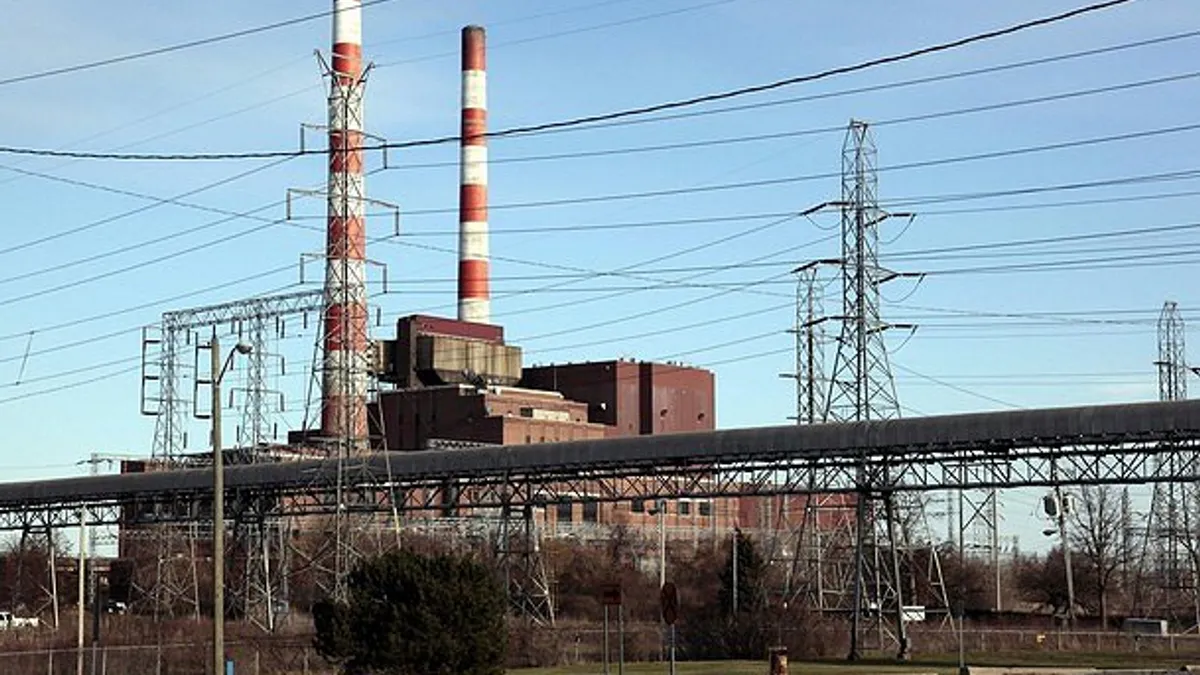Dive Brief:
-
A district court on Thursday rejected the Trump administration's challenge to a settlement agreement between DTE Energy and Sierra Club that led to the utility committing to retire three coal-fired plants.
-
Following years of litigation, the Sierra Club in May filed a settlement agreement with DTE requiring the utility to retire the plants as well as provide funding for bus electrification and local environmental projects. But weeks later, the U.S. Environmental Protection Agency formally objected to the agreement, arguing the settlement encroached on its authority under the Clean Air Act (CAA).
-
Thursday's order from the Southern Division of the Eastern U.S. District Court of Michigan rejected EPA's argument, ruling the agreement constituted a private settlement, not a consent decree that the court should be involved in.
Dive Insight:
Thursday's ruling wraps up a decade of litigation between DTE, the U.S. government and the Sierra Club.
DTE was accused of violating the CAA under the Obama administration in 2010, and the district court allowed Sierra Club to intervene. After years of litigation, the U.S. Department of Justice filed a consent decree settling the 2010 enforcement filing. The consent decree required the utility to reduce emissions at the three coal plants, pay a $1.8 million civil penalty and replace municipal buses with lower emissions buses.
But the Sierra Club reached a more aggressive agreement with the utility. It required the utility to fund $2 million in local environmental projects, improving energy efficiency at a public recreation center, electrifying city buses and retiring the offending plants.
DTE agreed to both settlements, saying its agreement with Sierra Club was intended in part to "foster improved relations with Sierra Club and to provide benefits to a valued local community," along with resolving claims in the case.
But following Sierra Club's settlement, the U.S. government filed with the Michigan court, accusing the Sierra Club of "compel[ling] a consent decree on their own terms."
Sierra Club argued its agreement was a separate, private settlement, and attorneys called the government's objection to the settlement "unconscionable."
Ultimately, the court sided with Sierra Club.
"[N]either the United States' interests nor any of the terms of the consent decree are eroded or jeopardized as a consequence of the Separate Agreement," Judge Bernard Friedman wrote. Further, he found the agreement "accomplishes an enormous environmental benefit that is fully consistent with the goals of the CAA."















